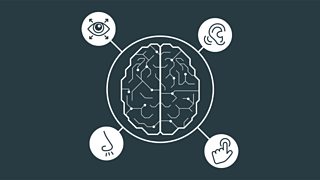
BBC Cape is the BBC's Neurodiversity initiative, created to remove barriers in the workplace and open opportunities for Neurodivergent employees, by improving the understanding of and support available for people with conditions such as Autism Spectrum Condition, Dyslexia, Dyspraxia and Tourette's.
Current estimates suggest between 10%-30% of the population are neurodivergent and yet awareness of what support or adjustments might be provided in employment remains low. For example, 16% of Autistic adults are in full time employment.
As part of our mission to improve the working environment, BBC CAPE created a toolkit that supported the provision for and audit of an inclusive working space.
While working environments are required by legislation to be accessible for physical disabilities, there is no such requirement with regard to neuro-cognitive conditions.
The idea of designing a Neuro-Inclusive Toolkit was therefore to provide a guide that considered the different sensory responses to an environment that some people may experience.
In the same way that workspaces are usually audited to consider physical accessibility, such a toolkit would help inform adjustments required to support Neurodiverse communities, moving toward creating Universal Environments – those that meet everyone's needs.
Areas to consider revolve primarily around the sensory impact to individuals and so the toolkit is structured around the senses; Tactile, Auditory, Visual and Olfactory (smell).
The toolkit provides a series of considerations under each of these sensory headings, providing both positive and negative examples of common features found within typical working environments.
As well as being used to audit working spaces as part of a general maintenance process, the checklist can also be used to support conversations concerning environmental factors when considering reasonable adjustments in the workplace.
The toolkit includes 'Yes' or 'No' options provided to identify whether actions are required as part of an audit assessment or a reasonable adjustment following a workplace induction conversation, for example.
A scoring system is also provided should the need exist to indicate the severity or priority of any action required. Any identified actions or comments can also then be noted in a section provided at the end of the checklist.
This toolkit is now available as a guide for others, as part of BBC CAPE's ambition to grow the awareness and support of Neurodiversity by sharing content from the initiative in line with the BBC's wider public values.






